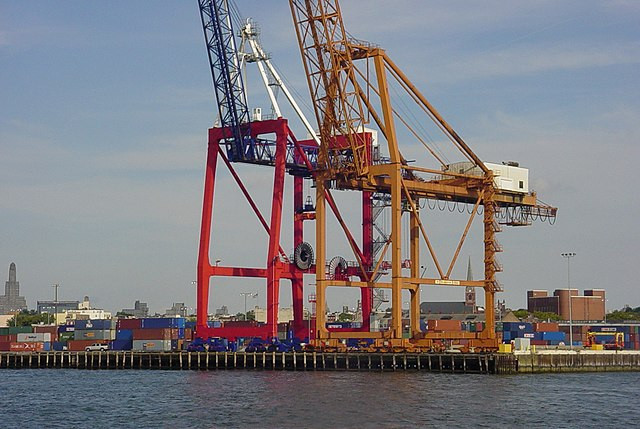A historic strike by dockworkers that brought East and Gulf Coast ports to a standstill has been temporarily halted as the International Longshoremen's Association (ILA) and the United States Maritime Alliance (USMX) reached a tentative agreement on wage increases. The proposed deal includes a 62% wage hike over six years, significantly higher than the 50% initially offered by shipping companies.
"Effective immediately, all current job actions will cease, and all work covered by the Master Contract will resume," the ILA and USMX announced in a joint statement late Thursday. The agreement, which still needs to be ratified by ILA members, promises to raise wages for top dockworkers from $39 per hour to $63 per hour by the end of the contract period.
The ILA had been pushing for a 77% wage increase, but after several days of tense negotiations and mounting pressure from the Biden administration, the two sides managed to find middle ground. The strike, which had shut down dozens of ports along the East and Gulf coasts, posed a major threat to the U.S. economy, especially with the holiday season approaching and ongoing hurricane recovery efforts in the Southeast.
While the tentative deal represents a significant victory for the ILA on the issue of wages, the question of automation in ports remains unresolved. The union has long opposed the increased use of automated machinery, fearing it will result in job losses. According to sources familiar with the negotiations, discussions on this issue are expected to continue through January 15, when the current contract extension expires.
President Joe Biden praised the deal, calling it a "record wage" that will benefit workers who have kept the nation's ports running through difficult times, including the COVID-19 pandemic. "I want to thank the union workers, the carriers, and the port operators for acting patriotically to reopen our ports and ensure the availability of critical supplies for Hurricane Helene recovery and rebuilding," Biden said in a statement.
The strike, which began early Tuesday morning, was the first coastwide work stoppage by dockworkers in nearly five decades. Picket lines quickly formed at ports up and down the Atlantic and Gulf coasts, causing severe disruptions to the flow of containerized goods. Tens of thousands of dockworkers walked off the job, halting imports and exports that ranged from everyday consumer goods like bananas to critical components for the automotive and manufacturing industries.
The economic impact was expected to be severe if the strike had continued. Analysts warned that a prolonged work stoppage could have sparked a surge in inflation, driven up prices for consumers, and led to layoffs as raw materials became scarce. The last time a strike of this magnitude occurred on the East Coast and Gulf Coast, in 1977, it lasted seven weeks.
A shorter strike at West Coast ports in 2002 lasted 11 days but still prompted then-President George W. Bush to invoke the Taft-Hartley Act to force an end to the standoff. Business groups had been calling on Biden to use the same powers to intervene in the East Coast strike, but he declined, choosing instead to encourage both sides to reach a fair deal through collective bargaining.
Biden, along with Vice President Kamala Harris and Secretary of Transportation Pete Buttigieg, emphasized the significant profits shipping companies had enjoyed in recent years, particularly during the pandemic when supply chain disruptions drove shipping rates to historic highs. The industry has reportedly made over $400 billion in profits from 2020 to 2023, more than it had earned in total since containerization began in 1957.
The administration's stance put pressure on the USMX to sweeten its offer, which ultimately led to the tentative 62% pay increase. Acting Secretary of Labor Julie Su played a key role in facilitating the negotiations, meeting with both sides in New Jersey as talks neared their conclusion. Su was also instrumental in brokering a deal between West Coast dockworkers and their employers earlier this year, which resulted in a 32% pay raise over five years.
The tentative agreement still needs to be ratified by the rank-and-file members of the ILA, a process that could take weeks. If the deal is rejected, the strike could resume, further jeopardizing the nation's supply chain and threatening the recovery from both the pandemic and recent natural disasters. The union's leadership will now work to persuade its 50,000 members, who work at ports from Maine to Texas, to accept the terms of the new contract.
The agreement also extends the expired contract until January 15, allowing both sides to continue negotiating on the critical issue of automation. For now, though, the focus will be on getting dockworkers back to work and clearing the backlog of ships that have been stranded at sea since the strike began.




